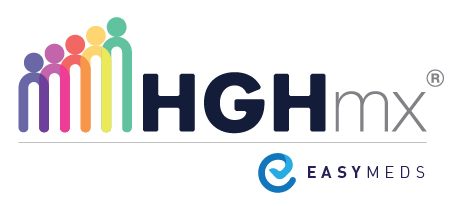What is a growth hormone deficiency in children?
A growth hormone deficiency is when the body does not make enough growth hormone for a child to grow at an average rate. There are two types:-
Congenital growth hormone deficiency:
This is the type of deficiency that some babies are born with. They can also have problems with other hormones. Even though they are born with this condition, some babies seem to be generally growing until they are 6 to 12 months old.
Acquired growth hormone deficiency:
Occurs when the body stops making enough growth hormone to grow at a normal pace.
What are the signs of growth hormone deficiency?
Doctors measure children’s height at regular check-ups. Over time, doctors can see how fast a child is growing, when a child is growing much slower than most children his age.
One of the most visible signs of growth retardation is that the child is much shorter than most other children his age. This is known as short stature. But some children can be stunted even without being short.
Other signs and symptoms of a growth hormone deficiency include:
- looking much younger than other children the same age
- high voice
- fine hair
- teeth coming in later than normal
- slow or late puberty
- small penis in boys
What Causes GH Deficiency?
It is usually related to problems in the pituitary gland or other parts of the brain. Brain tumors, head injuries, and radiation therapy to the brain can also cause a growth hormone deficiency.
How are growth hormone deficiencies diagnosed?
If your child is stunted or short, even in the absence of any other signs or symptoms, the doctor may refer them to a pediatric endocrinologist – a doctor who specializes in hormones and the growth of children.
The endocrinologist will study your child’s growth and carefully explore it. The doctor will send your child some tests to detect a possible growth hormone deficiency, such as the following:
Blood tests for GH Deficiency
There are no simple tests to measure growth hormone levels. This is because this hormone changes its concentration over time. It is manufactured in short downloads. This makes measuring it very complicated because there is no way of knowing when the discharge will occur. Since there is no simple way to measure growth hormone levels directly, doctors measure the levels of two proteins that work together with growth hormone:
- Insulin-like growth factor I (IGF-I). its acronym)
- protein three binding growth factor similar to insulin (IGFPB-3, by its acronym)
Radiographs of bone age for HGH Deficiency
X-rays of one of your child’s hands and wrists. An expert compares your child’s X-rays with those of other children his age and gives his bones a period in years. If the age of your child’s bones is much younger than their actual age, it may be a sign of growth hormone deficiency.
Growth hormone stimulation test
This test is done when other tests suggest that a child might have a growth hormone deficiency. First, doctors will ask the child not to drink or eat for a certain number of hours, usually at night. This is called fasting. The doctor will give your child medicine that should cause him to release a growth hormone rush. Next, a nurse will draw your blood at several different times to measure growth hormone levels. Obtaining low levels of this hormone can be used to confirm the diagnosis.
Brain magnetic resonance imaging (MRI).
This detailed brain image helps doctors see if there is a problem in the pituitary or surrounding parts of the brain that could be the cause of the deficiency.
How are growth hormone deficiencies treated?
Treatment of growth hormone deficiencies consists of receiving a daily injection of growth hormone. Parents learn to give these injections at home, so they don’t have to go to the doctor’s office every day to have them given to their children.
The endocrinologist will inform you how often your child should have check-ups when treatment begins. At each visit, the doctor will:
- monitor your child’s growth
- send tests to see how the child’s body is responding to the medicine
- adjust the dose, if necessary
Side effects are rare when using typical doses to treat deficiency of growth hormone. Tell the doctor if your child has a headache, vision changes, or lameness.
Treatment is usually done until growth is complete, usually late in adolescence.
What else should I know about Growth Hormone Deficiency?
Growth hormone can accelerate growth in a child with this hormone deficiency. Children who start early with this hormone are often better able to catch up with children their age than those who start later.
Many growth hormone deficient children who have no other medical problems and who are treated with daily growth hormone injections no longer need to have them as adults. Most of them start to make this hormone normally. Those who do not start making it themselves may still need these injections into adulthood.
